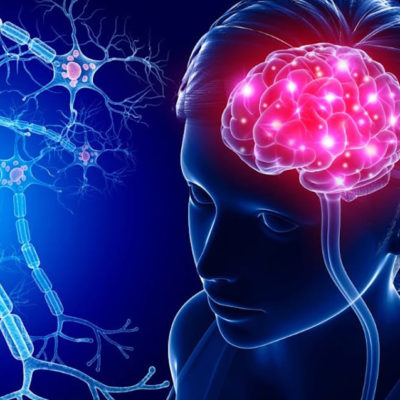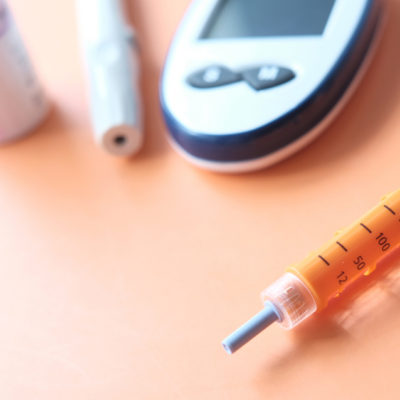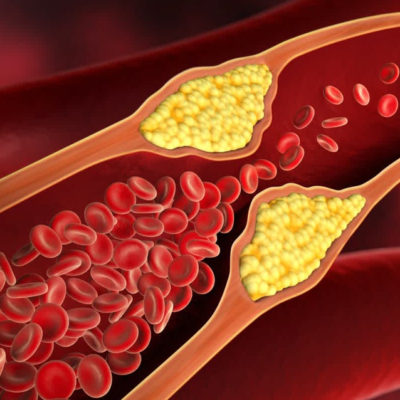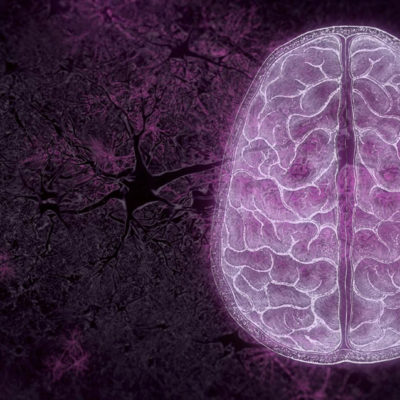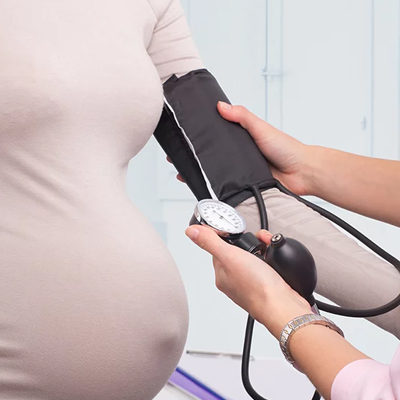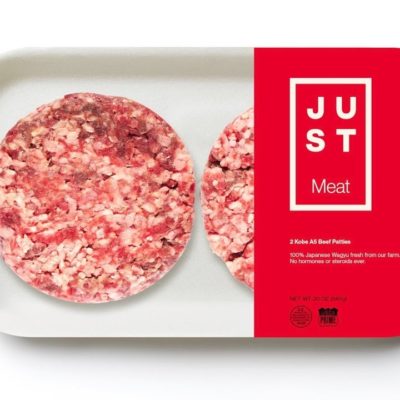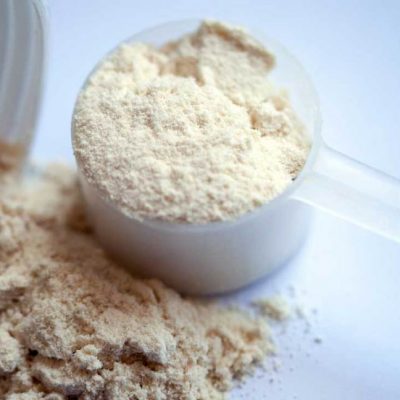An average of four minutes of incidental vigorous physical activity a day could almost halve the risk of major cardiovascular events, such as heart attacks, for middle-aged women who do not engage in structured exercise, according to new research from the University of Sydney, published in the British Journal of Sports Medicine. "We found that a minimum of 1.5 minutes to … [Read more...]
Significant Link Found Between Heme Iron, Found in Red Meat and Other Animal Products, and Type 2 diabetes risk
Higher intake of heme iron, the type found in red meat and other animal products -- as opposed to non-heme iron, found mostly in plant-based foods -- was associated with a higher risk of developing type 2 diabetes (T2D) in a new study led by researchers at Harvard T.H. Chan School of Public Health. While the link between heme iron and T2D has been reported previously, the … [Read more...]
Nutrient Research Reveals Pathway for Treating Brain Disorders
A University of Queensland researcher has found molecular doorways that could be used to help deliver drugs into the brain to treat neurological disorders. Dr Rosemary Cater from UQ's Institute for Molecular Bioscience led a team which discovered that an essential nutrient called choline is transported into the brain by a protein called FLVCR2. "Choline is a vitamin-like … [Read more...]
Every Breath You Take: Study Models the Journey of Inhaled Plastic Particle Pollution
The results of the modelling, published in the journal Environmental Advances, have pinpointed hotspots in the human respiratory system where plastic particles can accumulate, from the nasal cavity and larynx and into the lungs. Dr Saha said evidence was mounting on the significant impact of nano and microplastics on respiratory health and the UTS study would provide … [Read more...]
Understanding Rapid Weight Loss in Older Women: Message From the Heart
Unexplained rapid weight loss in older people could be a sign of underlying disease and can be linked with increased risk of falls and fractures, as well as a poorer long-term prognosis. The understanding of factors that could contribute to rapid weight loss remains poor, with current treatments including correcting suboptimal dietary and physical activity behaviors. New … [Read more...]
Hope For Autoimmune Skin Disorder Sufferers With New Immunotherapy Strategy
Researchers, led by University of Melbourne's Professor Laura Mackay, a Laboratory Head and Immunology Theme Leader at the Peter Doherty Institute of Infection and Immunity (Doherty Institute), discovered distinct mechanisms controlling different types of immune cells, and found that, by precisely targeting these mechanisms, they could selectively eliminate 'problematic cells' … [Read more...]
Almonds as Part of a Healthy Weight Loss Diet
When it comes to weight loss, nuts can get a bad rap -- while they're high in protein, they're also high in fats, and this often deters those looking to shed a few kilos. But new research from the University of South Australia shows that you can eat almonds and lose weight too. In the largest study of its kind, researchers found that including almonds in an energy restricted … [Read more...]
Comprehensive Insulin Signalling Map Shows interplay between genes and diet
Researchers have produced a comprehensive picture of insulin signalling in mice and suggest that it is shaped by entangled effects of genetics and diet. The research, published today as a Reviewed Preprint in eLife, is described by the editors as a fundamental study of substantial importance. They say the authors share compelling evidence that sheds light on the interplay … [Read more...]
Winning Combination For Sports-Related Shoulder Injuries
Starting a robust exercise program sooner after surgery could prevent patients with dislocated shoulders from sustaining a repeat injury and help them return to sport faster. University of Adelaide researchers spent three years analysing evidence from 3,600 existing studies and found a tailored exercise program commencing three to six weeks after surgery was the best … [Read more...]
Drug to Target Form of Previously Untreatable Life-Threatening “Bad Cholesterol”
A new drug offers a breakthrough world first treatment for Lipoprotein(a), a largely genetic form of cholesterol that increases the risk of heart attack and stroke, announced today by study lead Professor Stephen Nicholls, Director of the Monash University's Victorian Heart Institute and Victorian Heart Hospital. High levels of Lipoprotein(a), known as Lp(a) or spoken as … [Read more...]
AI to Predict your health later in life — all at the press of a button
Thanks to artificial intelligence, we will soon be able to predict our risk of developing serious health conditions later in life, at the press of a button. Abdominal aortic calcification, or AAC, is a calcification which can build up within the walls of the abdominal aorta and predicts your risk of developing cardiovascular disease events such as heart attacks and … [Read more...]
Plants Remove Cancer Causing Toxins From Air
A ground-breaking study has revealed that plants can efficiently remove toxic gasoline fumes, including cancer causing compounds such as benzene, from indoor air. The study was led by University of Technology Sydney (UTS) bioremediation researcher Associate Professor Fraser Torpy, in partnership with leading Australian plantscaping solutions company Ambius. The … [Read more...]
Landmark Study Finds That The Shape of The Brain Influences The Way it Works
For over a century, researchers have thought that the patterns of brain activity that define our experiences, hopes and dreams are determined by how different brain regions communicate with each other through a complex web of trillions of cellular connections. Now, a study led by from researchers at Monash University's Turner Institute for Brain and Mental Health has … [Read more...]
Fasting Diet Reduces Risk Markers of Type 2 Diabetes
Researchers from the University of Adelaide and South Australian Health and Medical Research Institute (SAHMRI) compared two different diets: a time restricted, intermittent fasting diet and a reduced calorie diet to see which one was more beneficial for people who were prone to developing type 2 diabetes. "Following a time restricted, intermittent fasting diet could help … [Read more...]
Exercise can Reduce Severity of Breast Cancer Rreatment Side Effects
Breast cancer is the most common form of the disease among women; in Australia, one in eight women will be diagnosed with breast cancer by the age of 85. Radiotherapy has emerged as an important component of breast cancer treatment but can lead to cancer-related fatigue and negatively impact patients' health-related quality of life including their emotional, physical and … [Read more...]
Black tea (and other favorites) may help your health later in life
A daily cup of tea could help you to enjoy better health late in life -- however if you're not a tea drinker, there are other things you can add to your diet. The key is flavonoids, which are naturally occurring substances found in many common foods and beverages such as black and green tea, apples, nuts, citrus fruit, berries and more. They have long been known to have … [Read more...]
Antibiotics Given in Infancy May have Adverse Impact on Adult Gut Health.
Preterm and low birth weight babies are routinely given antibiotics to prevent, not just treat, infections, which they have a high risk of developing. A new study, published in The Journal of Physiology has found that early life exposure to antibiotics in neonatal mice has long-lasting effects on their microbiota, enteric nervous system, and gut function. This could mean that … [Read more...]
Latte Lovers Rejoice! Study Reveals Drinking Coffee could Lower the Risk of Alzheimer’s Disease
Good news for those of us who can't face the day without their morning flat white: a long-term study has revealed drinking higher amounts of coffee may make you less likely to develop Alzheimer's disease. As part of the Australian Imaging, Biomarkers and Lifestyle Study of ageing, researchers from Edith Cowan University (ECU) investigated whether coffee intake affected the … [Read more...]
Potential role of ‘junk DNA’ Sequence in Aging, Cancer
The human body is essentially made up of trillions of living cells. It ages as its cells age, which happens when those cells eventually stop replicating and dividing. Scientists have long known that genes influence how cells age and how long humans live, but how that works exactly remains unclear. Findings from a new study led by researchers at Washington State University have … [Read more...]
Breakthrough could Lead to Early Detection of Pregnancy Complications
The quest to create safer, more successful pregnancies is one of the top goals of modern science. While pregnancy is better understood today than ever before, with improvements in technology helping to lower the risk of negative outcomes, there is much researchers still don't know about a vital part of the pregnancy process: uterine fluid. Secreted by glands in the uterus … [Read more...]
Sleep Helps keep teens good mental health
As families settle back into a new school year, sleep experts at the University of South Australia are reminding parents about the importance of teenagers getting enough sleep, cautioning them that insufficient sleep can negatively affect their mental health. In a new research paper, UniSA sleep experts Dr Alex Agostini and Dr Stephanie Centofanti confirm that sleep is … [Read more...]
Lifestyle Choices can Reduce the Risk of Chronic Kidney Disease
Active lifestyle choices such as eating vegetables, exercising and quitting smoking can reduce the risk of chronic kidney disease, a new study led by researchers at Karolinska Institutet in Sweden and Griffith University in Australia, reports. The study is published in The Journal of the American Society of Nephrology. About 10 percent of the world population suffers from … [Read more...]
Endometriosis: No cure, but diagnosis could avert surgery
The 21-year-old University of South Australia (UniSA) journalism student has lived with the condition for five years after first experiencing symptoms at age 16, but it has taken invasive laparoscopic surgery for an official diagnosis. Keyhole surgery is the standard option to reliably diagnose the three types of endometriosis (peritoneal, ovarian and deep infiltrating … [Read more...]
Gen Z not ready to eat lab-grown meat
New research by the University of Sydney and Curtin University to published on 8 September in Frontiers in Nutrition, found that, despite having a great concern for the environment and animal welfare, 72 percent of Generation Z were not ready to accept cultured meat -- defined in the survey as a lab-grown meat alternative produced by in-vitro cell cultures of animal cells, … [Read more...]
Long-term study finds faster breast cancer radiation treatment as effective as long course
A shorter course of higher-dose radiation treatment to part of the breast is showing promise in women with early-stage breast cancer who undergo breast conserving surgery, says a study led by Hamilton researchers. Accelerated partial breast irradiation (APBI) sees larger doses of radiation delivered to parts of the breast affected by cancer. This treatment takes place in … [Read more...]
Factors that determine obesity by adolescence revealed
Three simple factors that predict whether a healthy weight child will be overweight or obese by adolescence have been revealed in a new study led by the Murdoch Children's Research Institute (MCRI). The research shows three factors -- a child's and mother's Body Mass Index (BMI) and the mother's education level -- predict the onset or resolution of weight problems by … [Read more...]
Put down the protein shake: Variety of protein better for health
Amino acids have long been touted by the fitness and bodybuilding communities for their muscle building benefits. From ultra-bulk protein powders to lean mass-promoting snack bars, there's no shortage of products available for those seeking a muscle boost. However, protein's popularity has also meant that less attention has been paid to researching its potentially negative … [Read more...]
Fat cell discovery could help combat obesity-related health issues
Researchers have discovered differences in fat cells that could potentially identify people predisposed to metabolic diseases such as diabetes and fatty liver disease. The world-first discovery also identified 'fast burning' fat cells that if unlocked might help people lose weight. About 70 per cent of Australians are overweight or obese, which has been linked to metabolic … [Read more...]
Australia-led global push to tackle PCOS – The principal cause of infertility in women
Australian led global guidelines for the diagnosis and treatment of the primary cause of infertility in women will be published simultaneously in three international journals, supported by a suite of health professional and patient resources to improve health outcomes for women with PCOS. Polycystic Ovary Syndrome (PCOS) affects up to 13% of women of reproductive age in … [Read more...]
Blood sample breakthrough good news for pregnant women
A wide range of fetal genetic abnormalities could soon be detected in early pregnancy thanks to a world-first study led by University of South Australia researchers using lab-on-a-chip, non-invasive technology. Biomedical engineers Dr Marnie Winter and Professor Benjamin Thierry from UniSA's Future Industries Institute (FII) and the ARC Centre of Excellence in Convergent … [Read more...]


